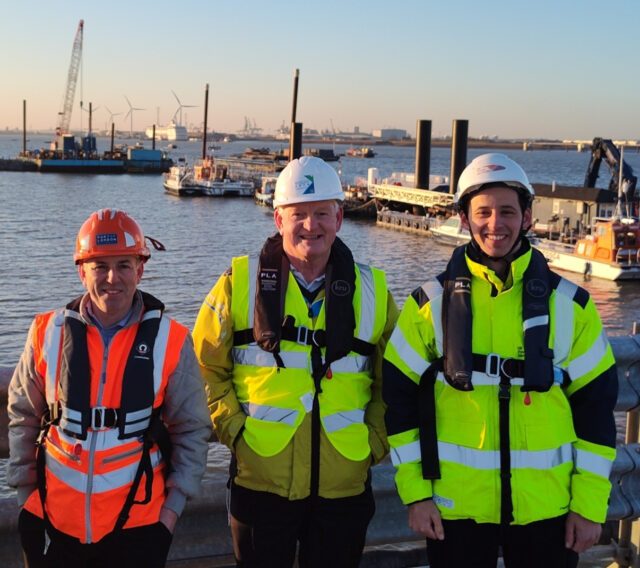For centuries, London’s River Thames has been a lifeline for the city, linking communities and powering trade. Now, a project by UK Power Networks is set to propel London’s iconic waterway into the green energy era.
Electric Thames is aimed at transforming the maritime sector by drastically reducing its carbon emissions. The project is addressing critical challenges around energy demand, infrastructure deployment and grid impact, helping to deliver a pathway towards clean-powered vessels.
In collaboration with partners, LCP Delta, Marine Zero, ev.energy and the Port of London Authority, the electricity firm ultimately hopes to extend the initiative’s impact far beyond London, showing the UK’s maritime sector how they can contribute to a cleaner, more sustainable energy future.
The ‘Electric Thames’ project is advising vessel operators on practical, cost-effective ways to switch to low-emission technologies, as it plans for future electricity demand along the river.
Vessel-to-Grid technology is a key innovation being explored, which allows electric boats to act as floating batteries, feeding surplus power back into the electricity grid when moored. This would help balance supply and demand during peak periods, while potentially saving them money.
The project has analysed tracking data for 62 of the 180 commercial vessels operating regularly on the River Thames. They used 38 GWh of energy a year, which is equivalent to 10 million litres of diesel, resulting in 27,200 tonnes of CO2 emissions. This helps determine the upgrades which could be required to the grid, so it informs UK Power Networks’ long-term network planning while supporting the UK in meeting its environmental targets.
The project team also analysed 21 riverside sites which could host charging infrastructure to support commerce, transport and tourism. Electric Thames is funded through the Strategic Innovation Fund, an Ofgem programme managed in partnership with Innovate UK.
Luca Grella, head of Innovation at UK Power Networks, said: “The River Thames has always been a vital lifeline for the capital, and now, as we look to decarbonise our world, we have a chance to transform the maritime sector.
“The work being done to integrate electric vessels with technologies like Vessel-to-Grid is a major step forward, offering new ways to balance the grid and deliver cleaner, more efficient energy. With promising early results and the backing of key partners, we believe Electric Thames is setting the stage for a sustainable, resilient energy future that will benefit both the maritime industry and the wider community.”
Andy Hurley, operations director at Marine Zero said: “Vessel and site operators have been incredibly engaged and very keen to support this important project. Thanks to the operational intelligence Thames operators have given us access to, alongside working with an innovative energy network like UK Power Networks, we have been able to undertake widescale energy and power analysis.
“That in turn, has allowed us to build informed models and financial projections that reflect real-world conditions and constraints. This data-driven approach has optimised our decision-making process and strengthened stakeholder confidence in our implementation strategy.”




